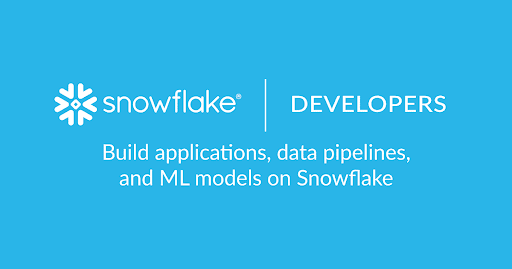Why Your Competitors Are Hiring Snowflake Developers (And You Should Too!)
- Prachi Shah
- May 6, 2025
- 6 Minute Read

Modern businesses generate massive amounts of data, requiring scalable, efficient, and safe processing platforms. Snowflake, a cloud-based data repository, has quickly become the number one solution for enterprises with such complex data requirements. It is perfectly suited for data-heavy settings due to its multi-cloud architecture and near-infinite scalability.
Snowflake developer hiring has, therefore, grown into a vital strategy. These experts possess strong technical knowledge and help in translating new data in real-time insights, refining data workflows, and integration with your stack. Organizations that hire Snowflake developer talent early on are at a strong competitive advantage.

What is Snowflake?
Snowflake is a cloud-based data platform built to store, manage, and analyze large-scale data across multiple environments. It separates storage from computing, allowing users to scale each independently based on workload demands.
Its core features include:
- Seamless scalability with instant elasticity
- High-speed performance for concurrent queries
- Built-in security with role-based access and data encryption
- Cross-cloud compatibility across AWS, Azure, and Google Cloud
Unlike traditional warehouses like Redshift or BigQuery, Snowflake offers native support for structured, semi-structured, and unstructured data in a single system. This flexibility makes hiring Snowflake developers critical for modern businesses aiming to modernize their data strategy.
The Growing Demand for Snowflake Developers
The popularity of the Snowflake platform has led to a high demand for Snowflake developers in all industries. By early 2025, Snowflake’s customer base surpassed 11,000 and included over 800 Forbes Global 2000 companies.
The current level of adoption has increased Snowflake’s hiring worldwide. It is being used in different industries, such as finance, retail, healthcare, and the tech sector, for its scalability and performance. Snowflake’s Data Cloud is being adopted by organizations in the financial sector for data sharing and collaboration.
The high demand is reflected in Snowflake developers’ salaries. The average salary in the USA for a Snowflake developer is about $136,627, while more experienced professionals make as high as $171,491. This competitive compensation highlights the importance businesses place on Snowflake developer skills.
Since Snowflake is steadily and widely scaling out different features and capabilities, it will also become a critical area of talent investment.

Why Your Competitors Are Investing in Snowflake Talent
Businesses are turning to Snowflake to transform their data capabilities. Here’s why your competitors are making the shift:
- Better analytics and reporting: With Snowflake, real-time dashboards, quicker query performance, and cross-cloud data sharing can be achieved without duplication.
- Effortless data integration: Organizations simplify ETL/ELT processes and consolidate data from different sources to make informed decisions.
- Industry-proven performance: Organizations such as Capital One, Pfizer, and JetBlue are faster on Snowflake and can handle large volumes of data.
- Operational perks: Snowflake supports cost control through per-second billing, auto-scaling, and compression of storage.
- Strategic insights at speed: The right Snowflake developer skills on deck enable companies to achieve faster customer segmentation, more accurate forecasting, and deeper personalization.

Key Skills of a Snowflake Developer
When hiring Snowflake developers, you need professionals who can manage complex data pipelines and cloud environments with precision. Here are the essential Snowflake developer skills to evaluate:
- Strong command of SQL and SnowSQL: Enables efficient querying, scripting, and automation within the Snowflake environment.
- Expertise in data modeling: Critical for building scalable, well-structured schemas that support analytics and reporting.
- Hands-on experience with ETL/ELT tools: Familiarity with dbt, Fivetran, or Matillion helps streamline data ingestion and transformation processes.
- Integration with modern BI tools: Developers should know how to connect Snowflake with Tableau, Power BI, or Looker for dashboarding.
- Knowledge of cloud platforms: AWS, Azure, or GCP familiarity is important for secure deployment and data movement.
- Performance optimization and governance: Skills in query tuning, cost control, and data access policies ensure operational efficiency.
Benefits of Hiring a Snowflake Developer
Hiring remote Snowflake developers can dramatically improve how your organization manages and uses data. Their expertise leads to measurable results:
- Accelerated data processing: They design pipelines that reduce query latency and improve overall performance.
- Improved decision-making: Accurate, real-time data access supports faster, insight-driven business strategies.
- Lower operational costs: Skilled developers optimize compute usage, reduce data redundancy, and cut storage expenses.
- Smooth tech integration: They ensure Snowflake works flawlessly with existing BI tools, cloud services, and data ecosystems.
What to Look for When Hiring a Snowflake Developer
Hiring Snowflake developers requires evaluating both their technical qualifications and their ability to align with your business goals.
- Certifications: Prioritize SnowPro Core or Advanced certifications. They reflect verified expertise in Snowflake’s architecture and features.
- Relevant experience: Examine the developer’s project history for scale, industry context, and performance optimization practices.
- Problem-solving ability: Strong analytical thinking helps troubleshoot complex issues and improve query performance with precision.
- Collaboration skills: Top Snowflake developers work efficiently with engineers, data analysts, and BI teams to deliver end-to-end solutions.
In-House vs. Outsourced Snowflake Talent
Businesses often choose between full-time hires and external partners when hiring Snowflake developers. Each model has distinct advantages.
In-house developers offer greater control, consistent collaboration, and long-term alignment with internal teams. They’re ideal for companies with ongoing data needs or those building complex, proprietary systems.
Outsourced developers, freelancers, or agencies bring flexibility, faster onboarding, and access to specialized Snowflake developer skills. They’re often more cost-effective for short-term or project-based requirements.
Budget also plays a role. Hiring full-time may increase long-term costs but build internal expertise. Outsourcing allows businesses to scale quickly without committing to a permanent headcount.
To ensure success with external talent:
- Verify credentials and Snowflake certifications
- Request references and relevant work samples
- Establish clear SLAs for quality, timelines, and security
Future Outlook: Why Investing Now Will Pay Off
Snowflake has transformed from a cloud data warehouse to a highly versatile enterprise-grade data platform at an impressive pace. Recent innovations such as Native Apps, Unistore, and Iceberg Tables are extending the capabilities of these tools from analytics to application development and data sharing. These functions also allow for quicker, more agile data workflows in hybrid or multi-cloud environments.
Snowflake’s integration with AI and machine learning tools is also deepening. It enables deploying predictive models and real-time intelligence in existing data pipelines. As data becomes central to innovation and strategic decision-making, organizations that invest in hiring Snowflake developers today will gain a significant first-mover advantage. The future will favor companies that build scalable, intelligent data infrastructure now.
Summary
Snowflake is transforming how organizations manage and scale their data strategies. With its cloud-native architecture and growing feature set, it offers unmatched performance, flexibility, and cost efficiency.
Hiring Snowflake developers helps businesses implement, optimize, and innovate using this platform. They bring essential Snowflake developer skills that drive real-time analytics, streamline data workflows, and enable smarter decisions.
In today’s competitive landscape, data speed and accuracy matter more than ever. Businesses already investing in Snowflake talent are reaping the rewards through operational efficiency and better insights.
To stay ahead, now is the time to act. Whether scaling data infrastructure or starting fresh, the right Snowflake expert can shape your success.
Frequently Asked Questions
What does a Snowflake developer do?
They design, build, and optimize data pipelines, queries, and workflows on the Snowflake platform.
Is Snowflake better than traditional data warehouses?
Yes. Snowflake offers scalability, lower costs, cross-cloud compatibility, and zero-maintenance architecture.
How much does it cost to hire a Snowflake developer?
The average cost in the U.S. ranges between $105,000 and $185,000 per year. Costs vary based on experience, certifications, and project complexity.
What industries benefit the most from using Snowflake?
Finance, retail, healthcare, e-commerce, and tech companies benefit due to their data-intensive environments.
Can Snowflake be used for real-time data processing?
Yes. Snowflake supports real-time data loading and querying through integrations like Kafka and Snowpipe.
Is it hard to find qualified Snowflake developers?
Yes, demand often exceeds supply, but skilled developers with SnowPro certification and cloud platform experience are increasingly accessible.
What’s the difference between a data engineer and a Snowflake developer?
A data engineer manages pipelines across systems, while a Snowflake developer focuses on building, optimizing, and maintaining Snowflake-specific solutions.
How long does it take to implement Snowflake in a company?
Implementation takes two to eight weeks, depending on data complexity and system integration.
Do I need a Snowflake developer if I already have a BI team?
Yes. BI teams interpret data, while developers build and manage the data infrastructure.
What are the risks of not adopting modern data platforms like Snowflake?
You risk slower insights, poor scalability, higher maintenance costs, and falling behind in data maturity.






